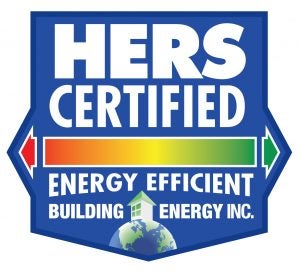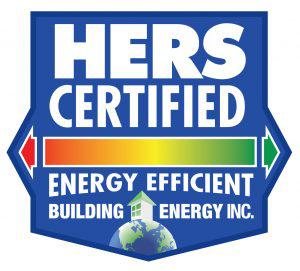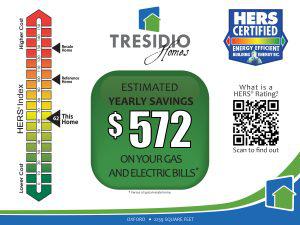What is a HERS Score?
If you asked 1,000 people if they prefer to save money in any way possible without having to make huge sacrifices, my guess is that 1,000 would resoundingly answer yes. The HERS score is a simple and smart way to save a significant amount of money on utility bills without great sacrifice.
Construction techniques have advanced by leaps and bounds within the last couple of decades. In fact, despite homes being increasingly built larger, they use 14 percent less energy on average today than they did in 1975.1 Translation: innovations in construction make your home less expensive to operate.
This is where the HERS score comes in. The Home Energy Rating System (HERS) Index Score tells you how just how well your home is performing in terms of energy efficiency and translates that into dollars saved in utility bills. The lower your score is on the HERS Scale, the more money you will save annually on utility bills.
Why, you might ask, do we emphasize savings on utility bills?
According to a report by the U.S. Department of Energy, “Heating, cooling, and lighting are still the largest single energy end-uses in a home, despite increased energy efficiency of this equipment.1“ Outside of a mortgage, your utilities are the largest expense generated by your home. This is why we emphasize the importance of a great HERS Score in our homes.
How do you know whether a home has a good or poor HERS Score?
The U.S. Department of Energy has determined that an average new home has a HERS Score of 100. Older homes that could be considered your typical resale home have a HERS Score of 130.2 Based on these industry averages, you can see whether your home is more or less energy-efficient than the average home. Think of it as a home’s MPG (miles per gallon). The better MPG you have, the less money coming out of your wallet.
What does this mean for me?
Remember how an average home uses 14 percent less energy today than it did forty years ago? That doesn’t mean your home is necessarily working at its optimal efficiency. Older homes will be even less efficient than the industry standard, putting a burden on your budget. It is worth considering the long-term savings in building a new home rather than buying used. Finding a home builder that makes use of efficient building techniques while utilizing technology to test and improve your home before it is built can have a significant impact on monthly and yearly savings with little or no additional cost.
For example, a typical Tresidio Homes has an average HERS score of 56. That means a Tresidio home, on average, is a whopping 56.9 percent more efficient than your typical resale home (HERS score of 130). How does that translate into dollars? An average savings of $1,111 per year on your utility bills – or about $92.583 a month! You can buy a lot of coffee with $92 extra each month.
While advancements in construction have made homes more efficient on average, not all energy-efficient homes are the same. The HERS Index Score is one of the easiest methods to determine whether you are going to pour a lot of money into utilities, or pour a lot of cups of coffee.
1http://apps1.eere.energy.gov/buildings/publications/pdfs/corporate/bt_stateindustry.pdf
2 https://www.resnet.us/hers-index
3 Calculation performed by Logan Pentzer, RESNET Certified HERS Rater. Average rating and savings of a standard Tresidio Home as of 10/4/2016. Savings and ratings vary between homes.





